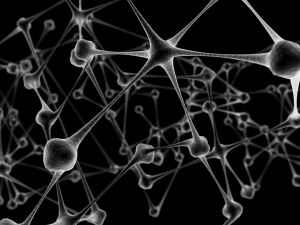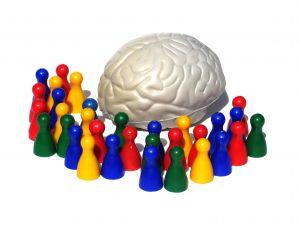Instinct is ingrained within us, it is the innate sense built into our genetic coding passed along thousands of years of evolution and beyond for the purpose of survival. We instinctively seek out pleasure, avoid pain, and conserve energy. Everything else within humanity is unique. Unique in the sense that it’s not necessarily seen within the animal kingdom.
For example, reason is not a part of the animal kingdom. It is something that has set us in a wholly different direction than, say, beavers. Reason is the logical and rational thought process of constructing our world. We distinctly differentiate between reason and instinct because in many ways they’re not entirely the same. There is certainly a reason why philosophers and scientists have been so wholly fascinated by reason, and it goes much further than consciousness.
This perception is traced back to Ancient Greece, to Socrates, Plato, and Aristotle, to name a few (though there are plenty more). They believed instinct should be tamed by reason. Reason was a mechanism to ensure that our instincts didn’t act irrationally, since if everyone’s instinct were to be given credence, then society would turn to chaos. A wife’s instinct to kill her adulterous husband would be celebrated if reason wasn’t there to tell the wife that such an instinct is bad. There are obvious numerous examples of when reason is used to subdue instinct, to reign it in so that we don’t do something rash.
Socrates, after being tried and found guilty, equated life as an illness that one had to master. It didn’t take much of a logical follow through for Plato and Aristotle to see reason as the device by which we master life. But could mastering life also stunt life, perhaps even killing it? In essence, could reason be the death of life?
Often, especially within modernity, reason is canonized as this supreme power. In fact, it seems almost deified in many ways, like an idol society worships for answers to its questions, no matter how inane. Perhaps, though, reason is not the answer. There might not even be an answer. But what if reason, rather than being the means to subdue and master our instincts, was used more so as a guide to our instincts so that we may achieve our will more successfully?
Instinct is the will, an individual’s desires, our goals, aspirations, what we want to achieve. For some it is a family; for others it is a career; and then there’s even more that don’t understand their desires. But instinct ultimately drives us towards those goals. It directs the decisions we make, and guides our reasoning and rationality. We establish our worlds on a fixed parameter based on propositions of our instincts. They are which propels us forward. That is, until we restrain them with reason.
Reason, while it can be used for benevolent, helpful purposes to fulfill our instincts, is often used as a means to circumscribe our instincts. Let’s say my instinct tells me to write something new, something that’s never been written before. Reason then transmits the idea, maybe even doubt, that everything has already been written and that nothing is new. All ideas have become clichés. So, not only do I not write something new that’s never been written before, but I can’t. It’s an impossibility because I’ve already set myself up for failure.
 Would denying that little voice of reason meant that my writing could have been original and new? Well, no. But I would have given it a shot, and could very well have succeeded. The same applies to almost any and every creative process. Art, farming, architecture, sculpture, science, academia, urban planning, etc. etc.
Would denying that little voice of reason meant that my writing could have been original and new? Well, no. But I would have given it a shot, and could very well have succeeded. The same applies to almost any and every creative process. Art, farming, architecture, sculpture, science, academia, urban planning, etc. etc.
But of course sometimes the instinct can be wrong. Sometimes it can be misleading, making the self believe it wants something when it really doesn’t. For example, I want to drive fast instinctively in order to get to my destination quicker. But I also don’t want to receive a ticket for speeding. Those two instinctual desires conflict, but sometimes we’ll often operate under conflicting instincts until one of them is crushed. In this case, I’m pulled over and given a fine, which more than likely I can’t pay. That’s where reason comes into play: to assess situations to best fit our instinctual goals so that we may achieve them. Rather than operating under the delusion of both conflicting instincts, my reason says to discern when it is the best time to go fast, and when it is the best time to go the speed limit.
Alright, yeah, that was kind of a stupid example. But the basic idea is there. Instincts need not always be ruled by our reason, but rather reason can be used as a mental device to achieve that in which we want. It is imperative that we learn to use our instincts rather than subdue them with reason, since instinct, as was previously established, is the basis of our survival. We were given the instinct to survive, and by those instincts we will continue to survive and flourish when we use reason to progress our desires.
Instinct and Reason,




